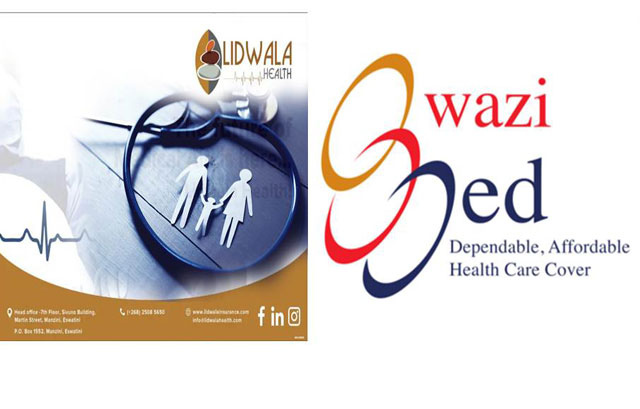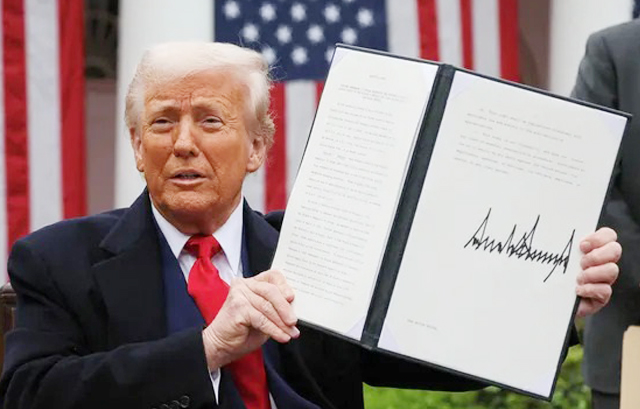By SIBUSISO DLAMINI | 2024-06-04

Doctors have listed 12 demands to medical aid schemes, threatening to reject medical aid starting on July 1st if their conditions aren’t met.
The doctors, who run practices, issued the ultimatum on Friday when they sent a letter of demand to all medical aid schemes in the country through their association; the Eswatini Private Doctors Association (EPDA) following an extraordinary general meeting held the previous week.
Among the demands was that payments of claims be made within one week, as timely payments are crucial for the survival of their practices, saying they found it unacceptable for service providers to wait a month for claims to be settled given the introduction of electronic claims submissions.
They also want fair pricing policies, stating that medical aid schemes should not dictate prices for professional services in a free market as this undermined, the autonomy of healthcare providers.
“By 1st July, medical aid schemes must meet these 12 demands, or doctors will begin rejecting medical aid cards, compelling patients to pay cash for consultations and minor procedures,” reads a part of the letter endorsed by the association’s President Dr. Muyabala Muna.
The move by the doctors comes after reports of frustration and financial strain due to delayed payments and alleged opaque practices by the medical aid schemes.
“Some schemes (present and in the past) have demonstrated bad faith by being dishonest, failing to pay doctors payment claims on behalf of the scheme’s members, spreading false information about the doctors and have engaged in inappropriate victimisation of doctors,” reads another part of the letter.
Private doctors are known to rely on medical aid payments as the majority of their income is derived from these schemes rather than direct cash payments from patients.
Afloat
According to some doctors, they have resorted to borrowing money to stay afloat, with their practices at risk due to non-payment of claims.
“These delays are crippling. We provide services in good faith, expecting that the claims will be settled promptly, but we now find ourselves struggling to meet our financial obligations, and it’s deeply unsettling,” complained one doctor, who further emphasised that the financial strain was not just a personal issue for doctors, but one that could potentially impact patient care.
“If this continues, some practices might be forced to close or refuse patients on medical aid, which would be disastrous for the healthcare system,” another doctor warned, putting emphasis on the need to ensure prompt payments of medical aid claims.
In the letter of demand, the association makes it clear that the frustration from the aforementioned long-standing grievances was the reason they decided to form a negotiations committee, which they envision to be a critical turning point in the relationship between private doctors and medical aid schemes in the country.
Formal
“There is a lack of formal working relationship, MoUs and Service Level Agreements (SLA) between doctors and most of the medical schemes, which has resulted in a lack of communication and consultations on several issues affecting both the doctors and the service we give to our patients,” reads another part of the letter.
They further stated that the newly- established committee had a clear mandate of engaging in constructive dialogue with medical aid schemes to advocate for the welfare of doctors and beneficiaries, as well as promote advancements in the private healthcare sector.
“We intend to use the committee to foster a relationship based on trust and mutual goodwill as there is currently a lack of formal working relationship between doctors and most of the medical schemes,” reads another segment of the letter.
One of the main points of the demands was the call for the regulatory for medical aid schemes in the country, an issue many doctors have complained about in recent months, claiming the lack of regulation in the sector has allowed schemes to delay payments, therefore, causing significant financial strain on them.
“Our livelihoods are at risk due to unpaid claims.
Complained
We provide services in good faith, expecting prompt settlement of claims, but we now find ourselves struggling to meet our financial obligations,” complained one doctor who spoke on condition of anonymity.
EPDA President Dr Muna also concurred with the doctors views, stating that doctors now feel like they were being mistreated, ignored and not invited to decision-making in the healthcare sector.
“Medical aids exist because there are manufacturers and doctors of the services which the medical aids promise clients to pay for, and on that account, medical doctors are central to the tripartite of medical scheme clients, medical scheme managers, and the medical doctors,” said Dr Muna, urging medical aid schemes to work with doctors fairly and mutually.
“We are ready to engage collaboratively with any scheme that is willing to meet our demands,” added Dr Muna.
Prominent medical aid schemes include Swazi Med, Lidwala Insurance and Oracle Insurance, among others.
‘We don’t owe any doctor’
Lidwala Insurance, a prominent player in the medical aid scheme sector, has refuted accusations of late claims payments to doctors.
Speaking on behalf of the company, Inyatsi Group Holdings Marketing and Public Relations Manager Ncobile Dlamini, disputed the late payments, and instead, emphasised the scheme's commitment to timely payments, revealing that provider pay runs are conducted on a weekly basis.
“As far as Lidwala Medical Aid is aware, there are no providers that we do not pay,” said Dlamini.
Providing insights into Lidwala's claim assessment process; she disclosed that claims received by Lidwala Medical Aid are assessed based on the scheme rules and the agreed tariffs with their providers, acknowledging the possibility of claims being short-paid or rejected due to various factors, ranging from duplicates to exhausted benefits.
According to Dlamini, Lidwala sends through remittance advices to service providers after every pay run, which details what claims have been paid, as well as details of short-paid or rejected claims.
Invite
In a bid to quell the concerns, she extended an olive branch to providers with outstanding claims.
“We invite any provider who may have unpaid claims to contact us,” she said, providing contact details for queries and claims submissions.
The 12 demands
The EPDA’s 12 demands to improve the working relationship between doctors and demand accountability and fairness in the medical aid system.
They are as follows:
The doctors have demanded that every scheme have written rules that are acceptable to members, schemes, and providers. These rules should include codes for services, consumables, and medication used for claims.
“The rules can be newly-formulated through discussions with the EPDA, adapted from existing South African guidelines, or adopted entirely from those guidelines,” said the EPDA.
Doctors have called for a level playing field between local providers and their South African counterparts, and therefore, demanding that locals should receive payment levels equal to those given to South African providers for the same services. “It is unacceptable for local providers to be discriminated against in their own country,” the EPDA emphasised.
The doctors have called for schemes to automatically assume fraud or malpractice and impose sanctions without due process.
The doctors believe that disputes should be resolved through an independent committee comprising representatives from the scheme and the EPDA, possibly including a neutral third party. “The decision of this body shall be final and set a precedent for future cases,” the doctors said.
The doctors have called for an independent body to which aggrieved service providers can address their concerns without fear of retribution, stating that doctors need a safe channel to voice their grievances.
5.Verifiable and traceable communications
The EPDA has put emphasis on the need for transparency in communication, demanding that all communications between schemes and service providers must be in writing.
“Verbal communications must be confirmed in writing within 24 hours,” the doctors demanded.
The doctors have demanded that schemes provide regular training for service providers and their staff, accompanied by written documentation confirming the training content.
“Proper training ensures high standards of care,” the EPDA added.
The doctors have complained about unilateral changes, stating that they create confusion and mistrust, and have therefore, suggested that changes to rules or claiming processes must be communicated in writing to all service providers and implemented only after mutual agreement.
The doctors have complained about tariff increases, and now want to be fully engaged in the decision-making, stating that fair negotiations on tariffs are essential for financial stability.
Given the complaints over delayed payments, the doctors say it is unacceptable for service providers to wait a month for claims to be settled given the advantages of electronic claims submissions. “Payments should be made within one week as timely payments are crucial for the survival of our practices,” said the doctors.
“Schemes should not dictate prices for professional services in a free market,” the EPDA said, complaining that such practice undermines the autonomy of healthcare providers.
Doctors have complained about schemes being responsible for issuing practice numbers, demanding that this function be managed by a body comprising all schemes, service providers, and legal counsel as needed, until appropriate legislation is in place. “Uniformity in practice numbers is essential for smooth operations,” the EPDA said.
“All open schemes must have MOUs with the EPDA regarding standard service-level agreements between the scheme and each private service provider,” demanded the doctors, on the reason that formal agreements ensure clarity and accountability.
Lessons from South Africa
In neighbouring South Africa, medical aid schemes are regulated by the Council of Medical Schemes (CMS), appointed by the minister of health.
The CMS safeguards the interests of medical schemes and their members, ensuring financial stability, alignment with national health policies, and the dissemination of vital healthcare information. The CMS convenes at least four times a year, with subcommittees focusing on specific facets for comprehensive oversight.
An independent Appeal Board, appointed by the minister of health, adjudicates appeals against council decisions, ensuring equitable proceedings and access to justice.
The CMS recently announced that it was launching an in-depth investigation into the potential factors contributing to the ‘extravagant costs’ incurred by medical schemes in hosting annual general meetings (AGMs).
This was after a research report published titled ‘Annual General Meetings of Medical Schemes: Importance and Challenges Associated with Limited Member Participation’ – which provided evidence that some medical schemes are spending exorbitant amounts on hosting AGMs.
The CMS said this spending pattern is deemed worrisome and necessitates an in-depth investigation into the potential factors contributing to these extravagant costs associated with hosting AGMs in the evolving landscape of medical schemes. It added that medical schemes remarkably allocate considerably higher expenditures towards hosting AGMs, particularly when juxtaposed with schemes possessing a significantly larger membership profile.
The CMS, as the regulator of medical aid schemes in South Africa, is, among other things, required to:
- Protect the interests of the beneficiaries at all times.
- Control and coordinate the functioning of medical schemes in a manner that is complementary to the national health policy.
- Make recommendations to the minister of health on criteria for the measurement of quality and outcomes of the relevant health services provided for by medical schemes and such other services as the CMS may from time to time determine.
- Investigate complaints and settle disputes about the affairs of medical schemes as provided for in the act.
- Collect and disseminate information about private healthcare.
- Advise the Minister of Health on any matter concerning medical schemes.
share story
Post Your Comments Below
The GNU in its current form is not likely to last, with pointed comments from the Preside...
FORMER NatCom Edgar Hillary says the request of Phase II salary restructuring exercise im...

IN a significant gesture, their Majesties blessed the participants of the Ingwenyama Cultural Cup...

United States President Donald Trump has announced sweeping new import taxes on all goods enterin...
All material © Swazi Observer. Material may not be published or reproduced in any form without prior written permission.
Design by Real Image Internet